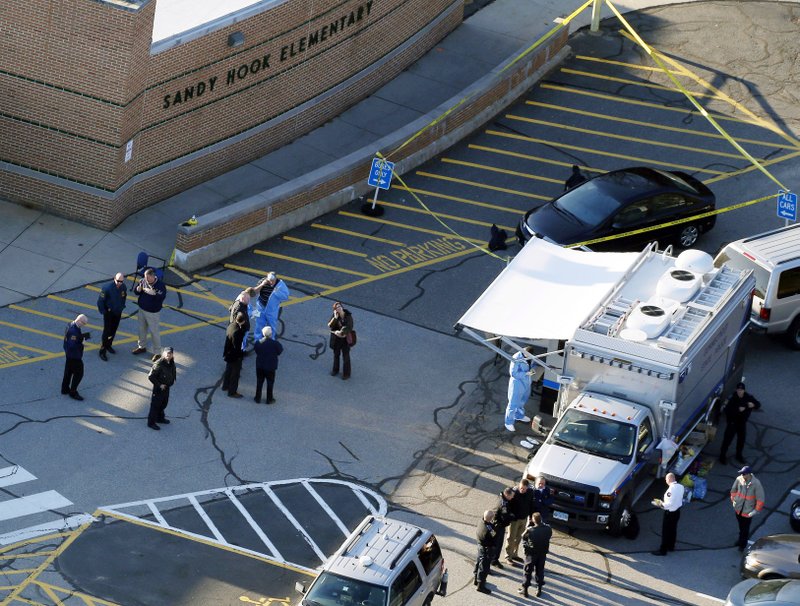HARTFORD, Conn. -- The school system unwittingly enabled Adam Lanza's mother to "accommodate and appease" him as he became more withdrawn socially, according to a state report issued Friday on the man who carried out the 2012 massacre at Sandy Hook Elementary School.
The Office of the Child Advocate report identified missed opportunities to provide more appropriate treatment for Lanza, whose social isolation and obsession with mass killings have been detailed in police reports that concluded the motive for the shootings may never be known.
A thread running through the 114-page report, which refers to Lanza as "AL," is the effort on the part of his parents to accommodate his disabilities rather than adhere to specialists' recommendations for extensive special-education support.
"Both AL's mother and his educational team shared a goal of managing and accommodating, rather than securing treatment for, AL's disabilities, and likely this approach was fueled by a lack of critical information and guidance," the report states.
In the three months before the massacre, Lanza did not leave his room in his mother's spacious, colonial-style house, where he lived surrounded by an arsenal of weapons and spent long hours playing violent video games. His parents were divorced, and Lanza had not seen his father for two years. The report states Lanza's severe, deteriorating mental health problems, combined with a preoccupation with violence and access to deadly weapons, proved a recipe for mass murder.
The report also asks whether a family that was not white or as affluent as the Lanzas would have been given the same leeway to manage treatment for their troubled child.
"Is the community more reluctant to intervene and more likely to provide deference to the parental judgment and decision-making of white, affluent parents than those caregivers who are poor or minority?" the authors questioned.
Lanza killed his mother, Nancy Lanza, then shot his way into the Newtown school Dec. 14, 2012, and gunned down 20 children and six educators before committing suicide.
The advocate's office investigates all child deaths in the state for lessons on prevention. The authors of the Newtown report said it aims to reinforce the importance of effective mental health treatment and communication among professionals charged with the care of children.
"Records indicate that the school system cared about AL's success but also unwittingly enabled Mrs. Lanza's preference to accommodate and appease AL through the educational plan's lack of attention to social-emotional support, failure to provide related services, and agreement to AL's plan of independent study and early graduation at age 17," the authors wrote.
The authors said they could not say whether more effective treatment could have prevented the tragedy.
"This report raises, but cannot definitively answer, the question as to whether better access to effective mental health and educational services would have prevented the tragic events at Sandy Hook," they wrote.
The police investigation into the massacre concluded more than a year ago with prosecutors saying that a motive might never be known. It said Lanza was afflicted with mental health problems, but that despite his dark interests, he did not display aggressive or threatening tendencies.
Documents released by police in December 2013 included descriptions of sporadic treatment for his mental health troubles. At one point, experts at the Yale Child Studies Center prescribed antidepressant/anti-anxiety medication, but Nancy Lanza discontinued the treatment and never scheduled follow-up visits, police reports said.
Nancy Lanza told the doctor by email that her son would not agree to any sort of medication and that he had been angered by the doctor's line of questioning, according to the state report.
After 2008, his parents did not appear to seek any mental health treatment for him, and there was no sustained input from a mental health provider after 2006, the report states.
A Connecticut judge last year ordered Newtown school officials to give Lanza's records to the Office of Child Advocate for its investigation. The governor's Sandy Hook Advisory Commission has been waiting for the office's report before releasing its recommendations on what the state can do to prevent and respond to future mass killings.
Children's advocate Sarah Eagan has already met with the families of the victims and Newtown school officials to discuss the findings.
A Section on 11/22/2014
